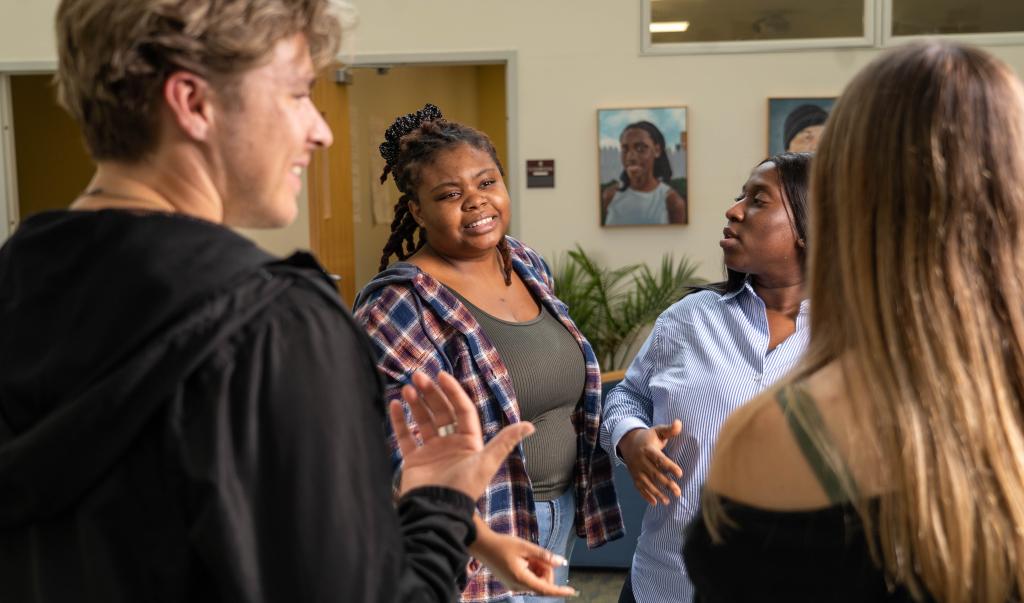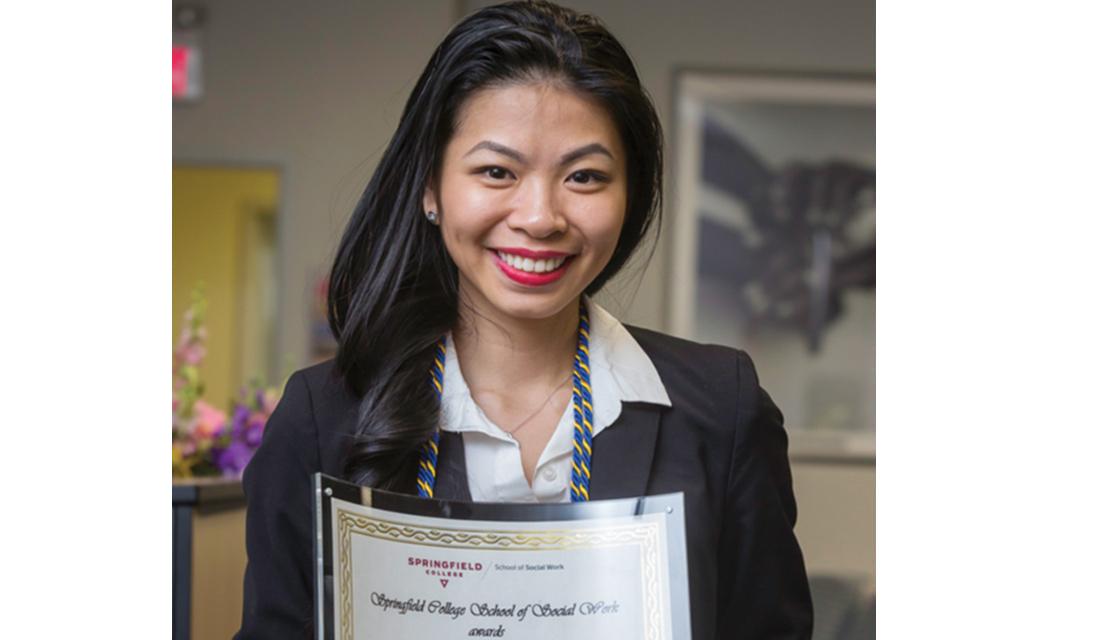Social Work/Juris Doctor Dual-Degree
| About This Program | |
|---|---|
|
Admissions Contact
Tessa Dowd Western New England University School of Law Are you an International Student? |
|
|
Program Contact
Lisa Watson |
|
Curriculum and Delivery
|
|
Start Dates and Duration
|
|
Practicum Education
|
|
| Graduate Success and Careers | |
| Social Work Licensure | |
| Paying for Your Education | |
| Looking for other degrees in Social Work? | |
|
Upcoming Events
Master's Degrees in Social Work Information Session Tips and Pointers for Applying to Graduate School Graduate Spring Open House Financial Aid Information Session |
|

Fight for Equity With Dual Expertise.
The full time MSW/JD dual degree program is offered in a partnership between Springfield College and Western New England University School of Law. The program provides eligible students with the advantage of being able to complete the degrees in four years rather than the five years it would take if the degrees were pursued separately.
Acquiring both a social and legal perspective, as well as skills, effectively prepares graduates to meet the social work and legal challenges in many areas of practice, such as child welfare, education, mental health, individual and family practice, family mediation, services to the disabled, legal aid, criminal and juvenile justice, consumer protection, advocacy, employment, housing, community development, human rights, and evaluation of social service programs.
Those interested in this program must apply to each program separately. You may contact the Springfield College School of Arts and Sciences at (413) 748-3713 or the WNE School of Law.
Mission:
Through the teaching of social work knowledge and practice, the Masters in Social Work program at Springfield College prepares individuals to meet universal human needs in order to engender mutually beneficial interaction between individuals and societal systems at all levels, based on principles of economic and social justice, dignity, and human rights.
How to Apply:
International Applicants
- $100 non-refundable International Application fee
In addition to the above admissions requirements, all international applicants from non-English-speaking countries are required to submit:
- Proof of English language proficiency by way of the TOEFL or IELTS: Other tests may be accepted on a case-by-case basis. Please refer to our language requirements for more information on acceptable tests, minimum scores, exemptions, and conditional acceptance. If your undergraduate degree was earned in the United States and you successfully completed college-level English, we will consider English language proficiency met.
- Please note: Transcripts must be in English. If the transcript is not in English you will be required to submit a professional credential evaluation completed by any member of the National Association of Credential Evaluation Services (NACES). For this we recommend SpanTran, with its customized portal for Springfield College applicants. World Education Services or Josef Silny & Associates, Inc. are also recommended for your credential evaluations.
The Office of International Admissions can assist you with questions you may have about enrolling at Springfield College as an international student by emailing intladmissions@springfieldcollege.edu.
Application Deadlines
Domestic Students:
Fall Start
- On Campus - Priority Application and Supporting Materials Deadline: April 24, 2026
- Online - Priority Application and Supporting Materials Deadline: July 1, 2026
International Students:
Fall Start
- Priority Application and Supporting Materials Deadline: April 24, 2026
Applications received after the deadline will be considered only if space is available.
MSW/JD students must be full-time students and matriculated in both the Springfield College Master of Social Work program and the Western New England University School of Law. If accepted at the Springfield College Master of Social Work program first, students have until mid-March of the first year in the social work program to apply to the program at Western New England University School of Law. If accepted to the School of Law first, students have until mid-March of the first year at the School of Law to apply to the Master of Social Work program at Springfield College.
Accreditation
Springfield College is recognized as an institution of higher learning of collegiate rank by the Board of Collegiate Authority of the Commonwealth of Massachusetts and is accredited by the New England Commission of Higher Education (NECHE), which accredits schools and colleges in the six New England states. Membership in these associations indicates that the College has been carefully evaluated and found to meet standards agreed upon by qualified educators.
The Springfield College Master of Social Work program is accredited by the Council on Social Work Education (CSWE), the official accrediting body for social work programs in the USA. This enables graduates to take professional social work licensure examinations in all fifty states.
The Western New England University School of Law, Springfield College’s partner in the MSW/JD dual degree program, is accredited by the American Bar Association (ABA) and is a member of the Association of American Law Schools (AALS).

